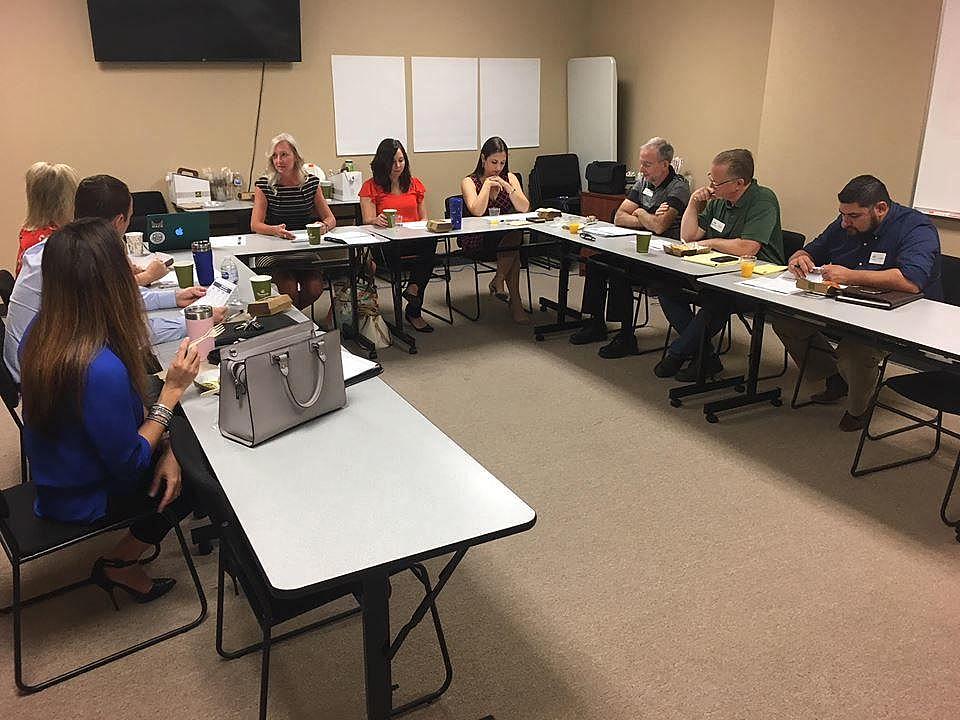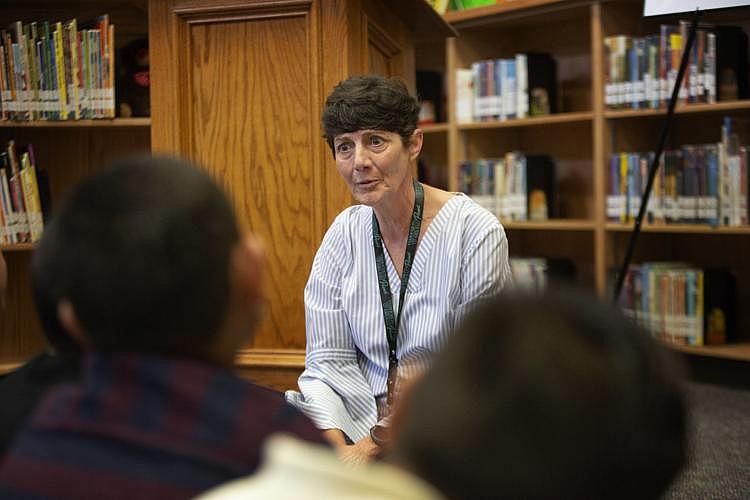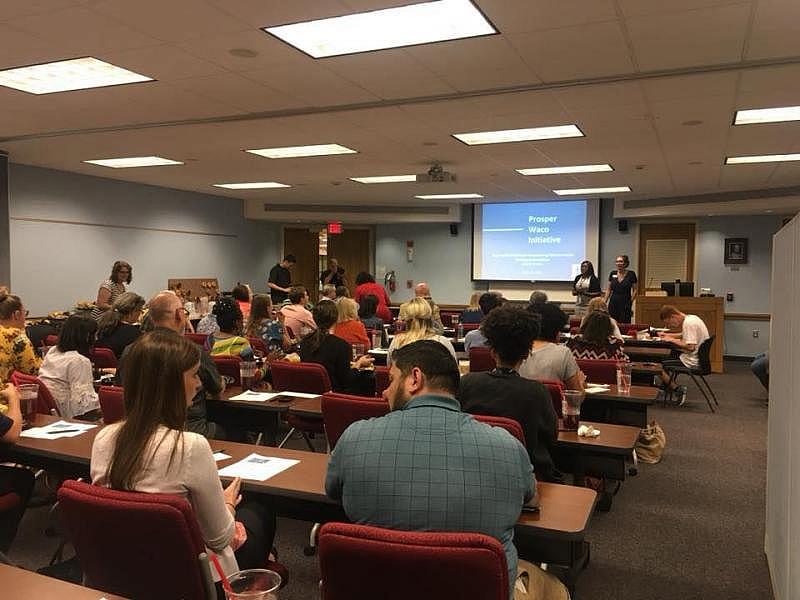'There's just not a silver bullet': How Waco is working together to improve families' education, finances, health
This project was produced with the support of USC Center for Health Journalism’s National Fellowship and Report for America, which deploys emerging journalists in local newsrooms like the Victoria Advocate.
Other stories in this series include:
Reporter column: We listened to your stories about life after Harvey. Now it's your turn to act.
Christmas miracle arrives for family struggling to rebuild after Harvey
PART 4: Will small towns recover after Harvey? It's a matter of if, not when
11 years have passed since affordable housing was built in Victoria; advocates say change needed
Part 3: Mold, bedbugs, rising rents — the reality of renting post-Harvey
Part 2: 'Willful blindness:' After Harvey, a Victoria family feels forgotten
Volunteers help Vietnam veteran living in car after Harvey
More than one year after Harvey, Vietnam veteran still living in his car
Hurricane Harvey exposed the gap between people who could afford to rebuild — and everyone else
Rebuilding after Harvey: 'You have to build their lives — not just their homes'
'We just got so much work to do': Number of homeless outside of shelters triples in Victoria

Prosper Waco organized a coalition called Bank on Waco, which met in August and aims to provide financial education for residents about banking.
(Photo Credit: Prosper Waco)
Matthew Polk has always believed education is the path out of poverty.
He spent about seven years overseeing a public charter school in Waco focused on sending children experiencing economic hardship to college. But after a while, it became clear that no matter what school officials did during class time, they couldn’t make stress from children’s home lives disappear.
Some kids would come to class sick, but couldn’t afford health insurance or medicine. Others were living without electricity or water when utilities got shut off. Some didn’t know where they would sleep at night.
“We were working to educate kids who were facing a bunch of challenges outside of the classroom,” he explained.
Polk spent a lot of time thinking about why these families had trouble succeeding. Waco, a city of almost 136,000 people about 200 miles north of Victoria, lacked a coordinated effort to address systemic obstacles blocking children’s paths – complicated issues like financial instability, health and access to education, which are often inextricably linked.
It turned out Polk wasn’t the only one thinking about these challenges. In 2014, community leaders in Waco were working together to develop a group dedicated to fostering an educated, healthy and successful tax base.
One year later, Prosper Waco was born. The nonprofit, started by community leaders, set measurable goals aimed at improving families’ financial security, health and education. To accomplish them, businesses, governments, nonprofits, schools and health care professionals are working together and using data to track their progress.
It’s an effort that some leaders in Victoria, a three-hour drive to the south, say is needed in a city lacking a coordinated force to address obstacles hurting families’ financial and physical well-being.
“It’s going to take sustained leadership across governmental entities working in collaboration with one another to sustain a conversation,” said Tami Keeling, who grew up in Waco but now lives in Victoria and serves as school board president. “And much like Waco, I think we’re uniquely poised to do that.”
Tami Keeling, president of the Victoria school board, talks with third-grade students at Torres Elementary about what they experienced during Hurricane Harvey. (Photo Credit: Advocate File Photo)
Victoria and Waco share similar problems. In Victoria, about 29 percent of children live in poverty, according to census estimates. Less than 21 percent of adults have a bachelor’s degree or higher. In Waco, a city about twice the size of Victoria, almost 32 percent of children live in poverty and less than 25 percent of adults have a bachelor’s degree or higher. Meanwhile, Waco’s median household income hovers around $39,000 – $20,000 less than the state median of $59,000.
Addressing those massive disparities seems like a daunting, if not impossible, task. It’s clear no one agency can fix them. So Polk, who was hired as the Waco nonprofit’s director, has spent the past few years planning and managing how Waco’s residents can team up to solve complicated problems.
Prosper Waco is a “collective impact” initiative, which means it seeks to harness the power of all key players – businesses, residents, nonprofits, schools, physicians, governments – to spur social change. The idea is that by working together, all of those groups can accomplish something that would otherwise be impossible on their own.
Take health care, for example. Prosper Waco set a number of goals to improve residents’ health by 2020, including decreasing the percentage of people using the ER as a source of primary care by 10 percent; reducing the rate of teen pregnancies by 10 percent; and boosting the percentage of people covered by health insurance by 1 percent each year.
Those are impossible tasks if organizations operate in isolation. But that’s where Prosper Waco comes in: to serve as the backbone organization that convenes key players – like hospitals, doctors and foundations – to brainstorm ways to inch closer toward those goals.
One solution to improve health so far has been creating a community health worker program, which pays about a dozen people to serve as a resource for their fellow neighbors living in less-privileged areas. The workers aren’t health professionals – they’re simply community members who undergo training so they can give advice on healthy living, navigating health care systems and finding affordable health insurance.
“People tend to listen to someone they trust rather than a professional they don’t know,” Polk said.
But a big question remains: How do you pay for it all? To fund the community health care program, Prosper Waco sought support from the Episcopal Health Foundation, which works to improve health and well-being. As for Prosper Waco, it operates with five to six staff on roughly $500,000 each year, which comes from the school district, local governments, foundations, businesses and health care systems.
Prosper Waco, a nonprofit aimed at improving residents' physical and financial health, held a workshop educating residents on health in June 2018. (Photo Credit: Prosper Waco)
“We’ve really seen the value of having a neutral entity to convene and facilitate conversations around these difficult issues – they are the kinds of things that there’s just not a silver bullet to,” Polk said. “And we feel there has been a major change in the mindset of organizations and individuals in how we work together.”
Keeling is familiar with Prosper Waco’s efforts; her mother, who lives in Waco, has been a longtime organizer and fundraiser for social service agencies and nonprofits there. And over the years, Keeling said she’s seen attempts to tackle complicated social barriers fail – over and over again – in both Waco and Victoria. But with dedication, teamwork and time, groups like Prosper Waco succeed.
It’s something that, with time and commitment, could be possible in Victoria, too, she said.
“You got to be willing to go through the one step forward and two steps back, and yet keep going,” said Keeling. “Don’t give up.”
[This story was originally published by Victoria Advocate.]

